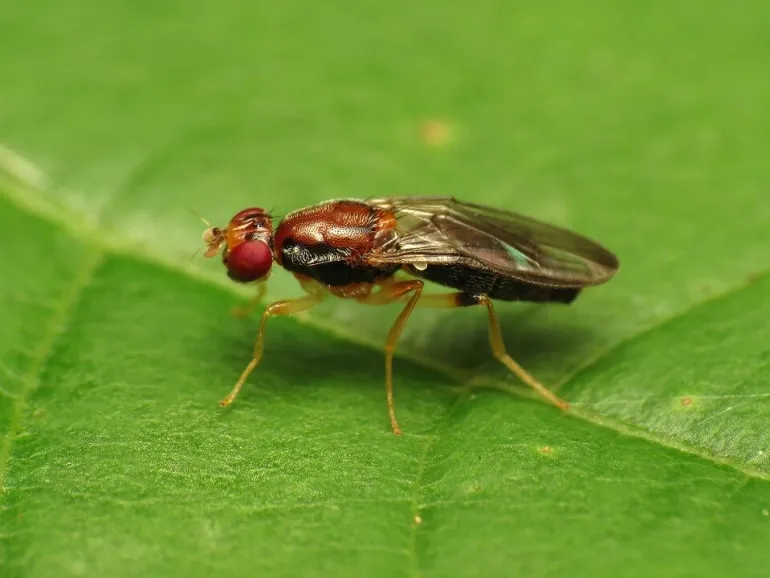Carrot Rust Fly

Scientific Name
Psila rosae
Description
Carrot rust flies are small insects whose larvae feed on the roots of carrots and related crops. Infestations often result in stunted growth, yellowing foliage, and overall reduced crop quality.
Characteristics
Adult flies are diminutive and dark in color, while their larvae are white, legless maggots that tunnel into roots, disrupting nutrient uptake and causing significant yield losses.
Control Methods
- Organic sprays: Apply organic insecticidal soap or neem oil during the adult fly period to deter egg-laying and reduce subsequent larval development.
- Cultural practices: Maintain garden hygiene by clearing decaying plant matter and rotating crops to prevent the buildup of pest populations.
- Preventive methods: Utilize crop rotation and install fine mesh netting to exclude adult flies from laying eggs on carrot crops. Remove volunteer carrots that may serve as alternate hosts.
- Biological controls: Encourage natural predators such as parasitic wasps, ground beetles, and other insectivorous organisms that target fly larvae.
- Mechanical physical: Employ floating row covers and sticky traps to intercept adult flies before they can infest the crops.
Natural Enemies
- Parasitic Wasps
- Ground Beetles
- Insectivorous Birds